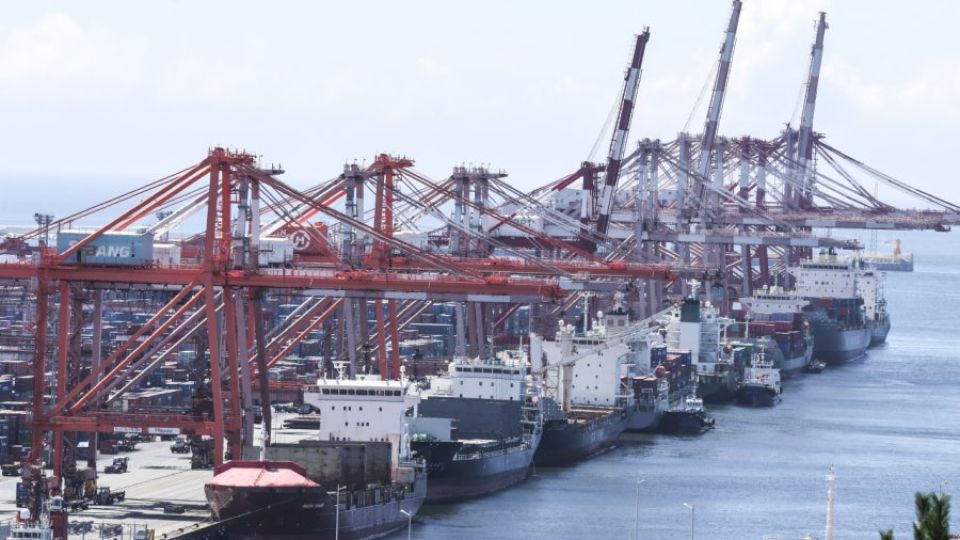August 3, 2023
SEOUL – Korea narrowly avoided a trade deficit in July as falling prices of energy and raw materials pulled imports down faster than exports.
Outbound shipments fell 16.5 percent on-year to $50.33 billion last month, while inbound shipments fell 25.4 percent to $48.7 billion, according to the data compiled by the Ministry of Trade, Industry and Energy and Korea Customs Service released Tuesday.
Accordingly, Korea logged a trade surplus of $1.63 billion in July, marking a $500 million increase from a month earlier. It is the first time since November 2021 Korea has had a trade a surplus for two straight months.
This marks a turnaround from the 15-month streak of deficits shown from March 2022 to May 2023. It was the longest period of trade deficit since the 29-month record from January 1995 to May 1997.
“Trade balance has been recording a surplus for consecutive months from June to July, showing a sign of favorable balance trend. This is due to the recovery of exports to China and major businesses such as the semiconductor industry,” Trade Minister Lee Chang-yang said.
But declining exports have continued to hold back the recovery of the export-dependent Korean economy. Korea’s exports fell by 16.5 percent on-year in July, declining for the 10th consecutive month.
The sluggish exports came as the overseas sales of semiconductors, the country’s key export item, sank 33.6 percent on-year on falling demand and a drop in chip prices, resulting in a $3.8 billion drop.
The Trade Ministry sees the delay in global economic recovery and slump in the chip industry to have affected the weak exports. It projected the chip industry will rebound within this year as the cut in memory chip production eases inventory woes and demand for advanced products such as DDR5 increases.

Kim Wan-ki, director general for international trade affairs at Trade Ministry, speaks during a press briefing held Tuesday. (Yonhap)
But declining exports have continued to hold back the recovery of the export-dependent Korean economy. Korea’s exports fell by 16.5 percent on-year in July, declining for the 10th consecutive month.
The sluggish exports came as the overseas sales of semiconductors, the country’s key export item, sank 33.6 percent on-year on falling demand and a drop in chip prices, resulting in a $3.8 billion drop.
The Trade Ministry sees the delay in global economic recovery and slump in the chip industry to have affected the weak exports. It projected the chip industry will rebound within this year as the cut in memory chip production eases inventory woes and demand for advanced products such as DDR5 increases.
“Though it is difficult to confirm for the time being, the chip industry will recover in the fourth quarter, amid the strong performance of the automobile and secondary battery (sectors),” said Kim Wan-ki, director general for international trade affairs at the Trade Ministry.
The drop in international oil prices also resulted in a decline in exports of petrochemicals by 24.5 percent and petroleum products by 42.3 percent.
Car exports spiked 15 percent on-year last month to reach $5.9 billion in sales, posting an increase for 13 consecutive months. It was the highest figure for July ever.
By destination, shipments to China, Korea’s top trading partner, fell 25.1 percent on-year, standing at $9.9 billion. Exports to China have been falling for 14 months.
Korea’s trade balance with China logged a deficit of $1.27 billion, showing a gradual recovery from the $2.71 billion deficit in March.
With the trade deficit with China halved, Korea’s biggest trade deficit is now with Japan, excluding Middle Eastern nations the country imports oil from.


